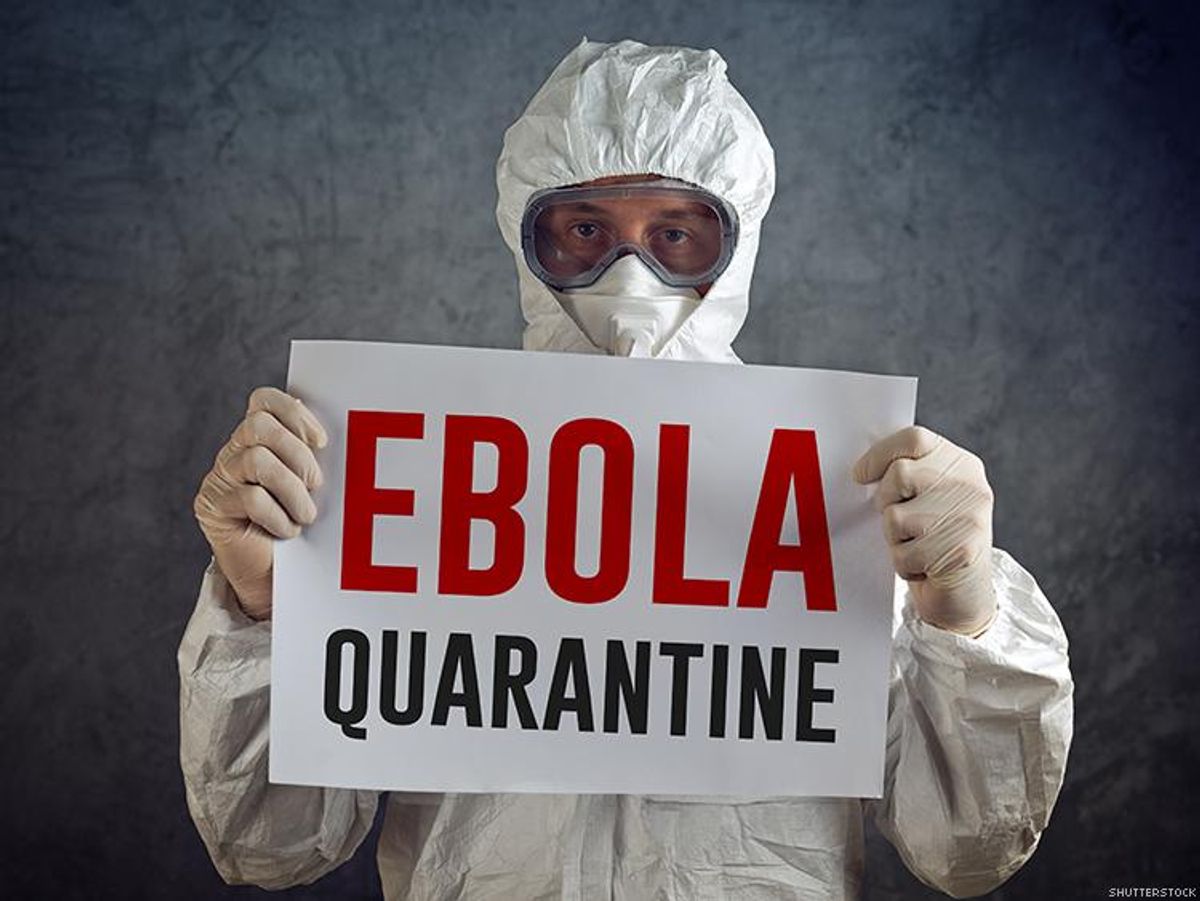
What we learned during the 1980s around AIDS can help us handle the ebola outbreak.
December 21 2015 8:40 AM EST
By continuing to use our site, you agree to our Privacy Policy and Terms of Use.

What we learned during the 1980s around AIDS can help us handle the ebola outbreak.
Scared you might get ebola? You’re not alone. The media frenzy around ebola in America earlier this year has made the whole nation twitchy if anyone who so much sneezes in their direction but are their fears warranted?
The answer to that is no. The Centers for Disease Control and Prevention have calmly and repeatedly explained how only the most intimate contact with an ebola sufferer would lead to infection, and then only when they are symptomatic. But short of giving a biology lesson on viral loads, most people are going to be scared of infection. Ebola is a scary, violent disease that destroys the bodies of its victims from the inside out. This year it has already killed nearly 5,000 in western Africa, so fear is not unfounded.
But the panic around ebola is eerily reminiscent of the panic around HIV in the 1980s, a comparison drawn over and over again by the media. Some lessons, we’ve seemed to have learned, for example the president today is not afraid of hugging an ebola victim while the president then didn’t say HIV until nearly AIDS until nearly 29,000 people had died.
And to put things into perspective: six people in the U.S. have been infected with ebola this year, while it’s estimated that 50,000 Americans were diagnosed with HIV.
In this short clip, Dr. Wafaa El-Sadr, university professor of Epidemiology and Medicine and director of ICAP at Columbia University’s Mailman School of Public Health, discusses how we can use the lessons we learned during the HIV crisis to address ebola.